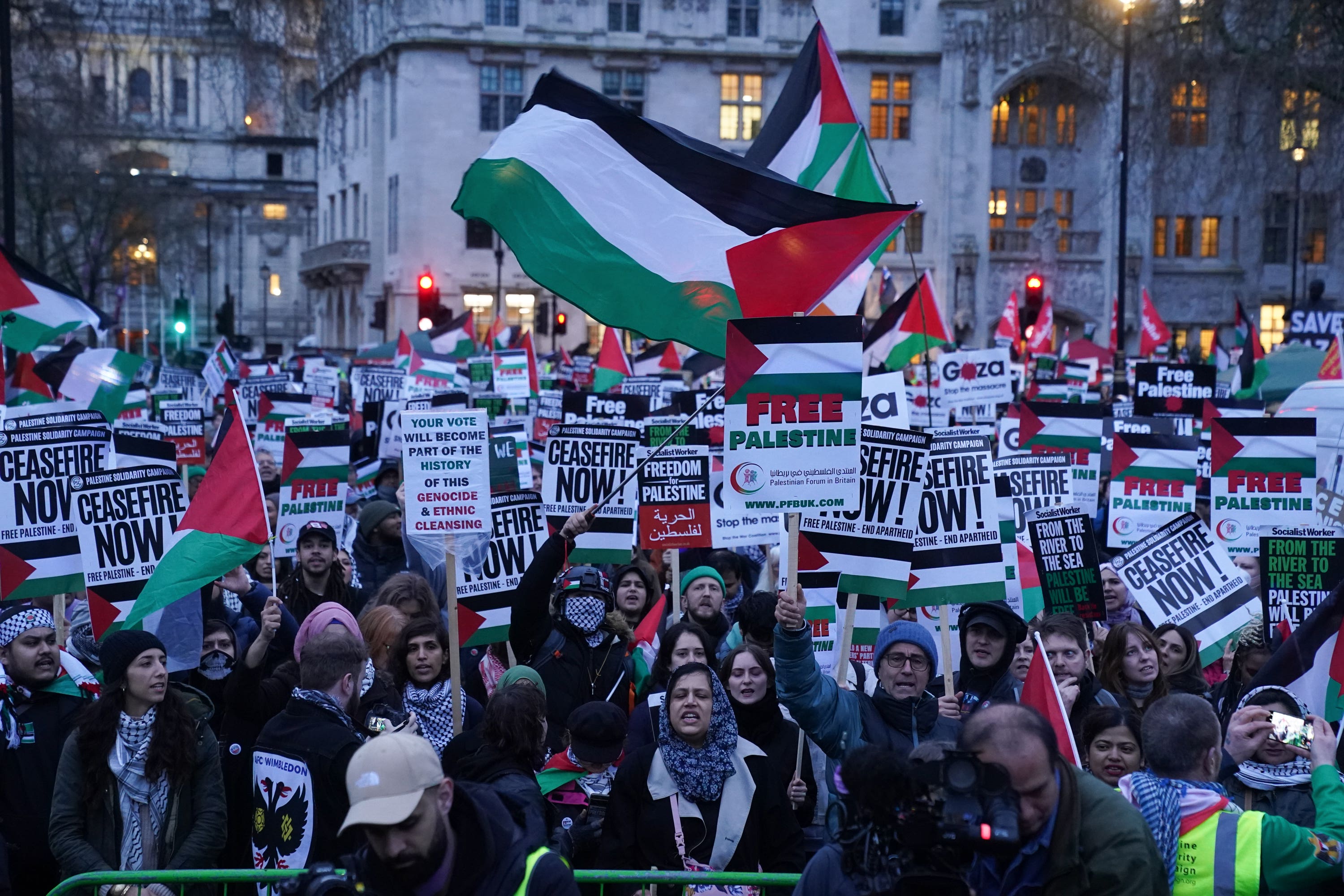Cleverly questions what regular pro-Palestine protests are hoping to achieve
The Home Secretary said the calls for an immediate ceasefire were in ‘disagreement’ with the Government’s ‘well thought-out’ position.

Your support helps us to tell the story
From reproductive rights to climate change to Big Tech, The Independent is on the ground when the story is developing. Whether it's investigating the financials of Elon Musk's pro-Trump PAC or producing our latest documentary, 'The A Word', which shines a light on the American women fighting for reproductive rights, we know how important it is to parse out the facts from the messaging.
At such a critical moment in US history, we need reporters on the ground. Your donation allows us to keep sending journalists to speak to both sides of the story.
The Independent is trusted by Americans across the entire political spectrum. And unlike many other quality news outlets, we choose not to lock Americans out of our reporting and analysis with paywalls. We believe quality journalism should be available to everyone, paid for by those who can afford it.
Your support makes all the difference.The Home Secretary has said pro-Palestine protesters have “made their point” and questioned whether holding regular marches “adds value” to their calls for an immediate ceasefire.
James Cleverly, in an interview with The Times, questioned what future demonstrations in support of ending the violence in Gaza hoped to achieve given the Conservative UK Government was in “disagreement” with their position.
Prime Minister Rishi Sunak’s administration supports an immediate pause in the fighting between Israel and Hamas to allow hostages to be released and for aid to enter the territory.
No 10 says any ceasefire would come with conditions, including that Hamas — the Palestinian militant group that carried out the deadly raids on Israel on October 7 that sparked the war — can no longer be in charge of the Gaza Strip, to ensure it is sustainable.
They have made a point and they made it very, very loudly and I’m not sure that these marches every couple of weeks add value to the argument
Mr Cleverly told the newspaper the protests witnessed across Britain since the war broke out were putting a “huge amount of pressure” on the country’s police forces.
The senior Tory said: “The question I ask myself is, ‘What are these protests genuinely hoping to achieve?’
“They have made a point and they made it very, very loudly and I’m not sure that these marches every couple of weeks add value to the argument.
“They’re not really saying anything new.”
The tensions surrounding the Middle East conflict has reignited a debate around MP safety, with protesters targeting the homes of parliamentarians to demand action on Gaza.
The Home Secretary said it was vital that MPs were not “bullied” into changing their stance on the Gaza conflict due to threats from demonstrators.
In chaotic scenes during a Gaza ceasefire debate in the Commons last week, Speaker Sir Lindsay Hoyle broke with parliamentary precedent because he had concerns about the intimidation suffered by some MPs.
Mr Cleverly said: “I think it is really important that no one, no parliamentarian, feels that they should be bullied into taking a position they don’t believe is the right position
“So I genuinely don’t know what these regular protests are seeking to achieve.
“They have made their position clear, we recognise that there are many people in the UK that hold that position.
“We respect that but the UK Government’s position is a disagreement with that for very practical, well thought-out reasons.”
The Palestine Solidarity Campaign is planning further action on the weekend in support of Gaza.
Organisers are calling on supporters to take part in local protests on Saturday against Barclays Bank, which it says holds “substantial financial ties with arms companies supplying weapons and military technology to Israel”.
A march in support of a ceasefire in central London is planned for Saturday March 9.
US president Joe Biden this week said he was hopeful a ceasefire deal could be in place by next week, with negotiations continuing on Tuesday.
Separately, a protest is planned by farmers in Wales outside the Senedd in Cardiff on Wednesday.
They are opposed to proposed changes to post-Brexit subsidies which will require more land to be given over to tree planting and habitat creation.